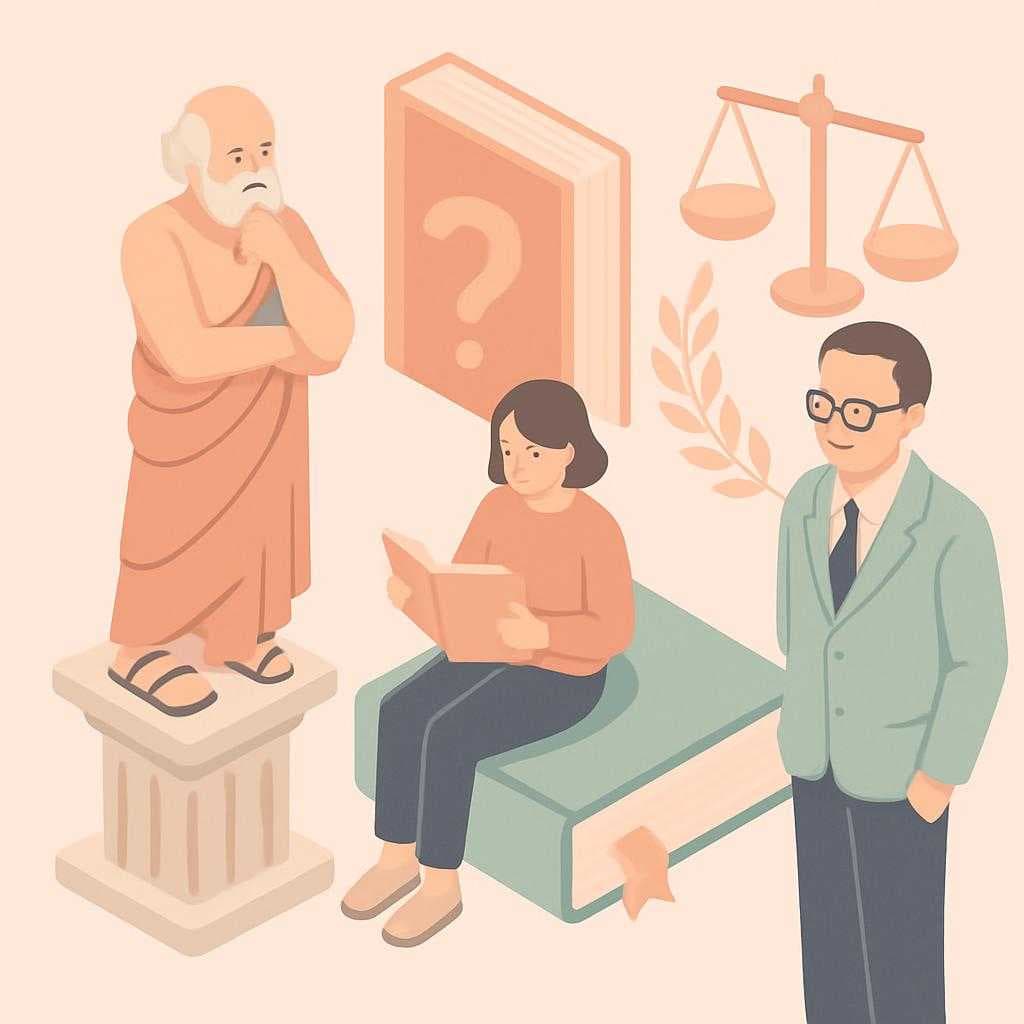From Socrates to Sartre: Navigating Ethical Theories for GCSE Philosophy
Summary: Dive into the world of ethical theories with this comprehensive guide designed for GCSE Philosophy students. Understand key concepts from major philosophers like Socrates and Sartre, and learn how to apply them effectively in your exams with AQA, Edexcel, and OCR.
Studying philosophy at the GCSE level offers students a unique opportunity to explore the profound questions of life, ethics, and morality. As you prepare for your exams with major UK exam boards such as AQA, Edexcel, and OCR, understanding ethical theories becomes crucial. This guide will help you navigate the rich landscape of ethical philosophy, from the ancient wisdom of Socrates to the existential insights of Sartre.
Understanding Ethical Theories
Ethical theories form the backbone of philosophical inquiry into what constitutes 'right' and 'wrong'. At GCSE level, you'll encounter several key theories, including Utilitarianism, Deontology, Virtue Ethics, and Existentialism. Each of these provides a distinct lens through which ethical dilemmas can be examined.
-
Utilitarianism: Focuses on the consequences of actions, promoting those that maximize happiness and minimize suffering. Remember to highlight key thinkers like Jeremy Bentham and John Stuart Mill in your exams.
-
Deontology: Introduced by Immanuel Kant, this theory emphasizes duties and rules. According to Kant, the morality of an action is based on whether it adheres to a set of rules, regardless of the outcome.
-
Virtue Ethics: Originating from Aristotle, this theory stresses the importance of character and virtues. It's not just about what you do but who you are as a person.
-
Existentialism: Popularized by Jean-Paul Sartre, this theory delves into individual freedom and responsibility. Existentialists argue that we are free to choose but also bear the burden of these choices.
Applying These Theories in Exams
As you prepare to tackle your GCSE Philosophy exams, it's essential to not just memorize these theories but to apply them critically. Here's how:
-
Understand Key Concepts: Make sure you grasp the fundamental principles of each ethical theory. Flashcards can help reinforce these concepts.
-
Analyze Case Studies: Apply ethical theories to real-world scenarios. This will not only enhance your understanding but also prepare you for exam questions that require practical application.
-
Compare and Contrast: Be prepared to discuss the strengths and weaknesses of each theory, as well as how they differ from each other. This will demonstrate a comprehensive understanding to examiners.
-
Practice Exam Questions: Familiarize yourself with the exam format for your specific board (AQA, Edexcel, or OCR). Each board might have different focal points, so tailor your revision accordingly.
Navigating ethical theories in GCSE Philosophy can be both challenging and rewarding. By understanding the perspectives of philosophers from Socrates to Sartre, and applying these insights effectively, you're well on your way to exam success. Remember, philosophy is not just about learning what others have thought, but developing your ability to think critically and independently.
